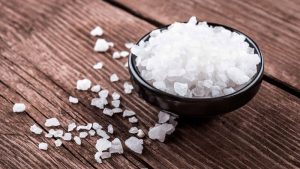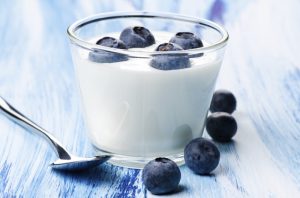Post Run Recovery tips for the best experience
Share
Run. Recover. Rest.
Result!
More of us are running than ever before, which is awesome. But how many of you are recovering properly? Here’s our foolproof guide to help you get back in the game faster than ever…
01 // GET COMPRESSED!
You might have noticed more and more runners using either compression tights or socks, which could be the result of studies that show they can stimulate blood flow and help legs recover faster during and after a run. Compression manufacturers will tell you that their products can help assist blood circulation and reduce blood lactate concentration during the run itself, plus the amount of muscle oscillation that comes with the regular pounding movement. There’s also a placebo affect in that by wearing them, you’ll feel you’re doing something positive to boost not only your performance, but also your recovery. While we wholeheartedly recommend using compression gear – two members of the BESTFIT team can’t do without it, and say it halves their recovery time – make sure you buy the right size; ill-fitting socks, sleeves or tights won’t provide the levels of compression you need.
02 // REFUEL
You have a 30-minute window if you’re to get the full effect of your recovery, so load up with protein or cherries, or both! Runners burn roughly 100 calories per mile, depending on height or weight. This can leave your body very tired. Therefore, it is essential that you replenish it with both vitamins and protein to repair any muscle damage.
Cherries are a powerhouse of nutrients, making them perfect for recovery. “They’re packed with vitamins, minerals, fibre and phytonu trients,” explains sports nutritionist Anita Bean. “They offer numerous health benefits and, eating them after exercise, may help you get more out of your workout.
trients,” explains sports nutritionist Anita Bean. “They offer numerous health benefits and, eating them after exercise, may help you get more out of your workout.
“Cherries contain powerful anti-inflammatory compounds, so they can help reduce inflammation, and ease arthritis and gout. A study found that regular consumption of 280g sweet cherries for 28 days lowered levels of inflammatory compounds in the blood, including C-reactive protein (CRP). The compounds that give cherries their red colour (anthocyanins) may act in a similar way to anti-inflammatory drugs, such as aspirin, by blocking the actions of certain enzymes.
“They are also a good source of vitamin C, so they may help you get a better night’s sleep, and reduce your blood pressure, too. Researchers found that drinking cherry juice within 30 minutes of your run, and 30 minutes before the evening meal, boosted sleep time by 84 minutes and improved sleep quality in people with insomnia.”
You’ll also benefit from getting stuck into some protein, says nutritionist Cassandra Barns. “Give your body the boost it needs with Nature’s Plus Pea Protein Powder (£22.50, naturesplus.co.uk). Add a scoop to your banana, avocado and spinach smoothie for an additional 15g of protein, which can also help you stay fuller for longer and stop you from snacking.”
03 // REHYDRATE
It is well known that when you exercise, you sweat more. The role of sweat is to cool down your core body temperature and prevent you from overheating. However, excessive sweating (say, over the course of a 26-mile marathon route) can leave you severely dehydrated and lacking in essential nutrients.
“You should refuel your muscles as soon as you can tolerate eating and rehydrate your body with extra liquids that have been lost through sweat. To add natural flavour to your drinking water you can steep flavoursome and fragrant things in it such as cucumber, lemon and mint,” adds nutritionist Shona Wilkinson from SuperfoodUK.com.
And don’t just rehydrate with water, add vitamins B & C, salt and magnesium too. The replacement of salts and vitamins is actually more essential after really long runs than the water itself. When you run, your immune system is weakened and salts are expelled through sweat. You can go for days without water, but it’s the lack of salts that harms you.
04 // Stretch it out
To help ease the inevitable build-up of lactic acid, it is important to resist the urge to collapse on the sofa, as that will only make your muscles tighter and sorer. The right stretches will loosen up those tense muscles and strengthen the ones that need a hand.
“Keep your spine mobile,” says Lynne Robinson, founder of Body Control Pilates. “Exercises such as waist twists helps to ease out unwanted kinks and also works the muscles.”
05 // Bath + salts = wins
 Treat your body to a soak to help relax muscles and loosen stiff joints. Some people suggest adding Epsom Salts, which in water breaks down into magnesium and sulphate to get into your body through your skin. They also often have oils, colours and scents to relax you and soften your skin. We also recommend the peppermint shower gels for their reviving properties. Activbod’s Feel Great Shower Concentrate is perfect for post-exercise because it is designed to help reawaken your body as well as cleanse, refresh and nourish your skin. Activbod’s Cooling Finish Lotion is also great. It contains menthol, which delivers an enjoyable cooling sensation to the skin. www.activbod.com
Treat your body to a soak to help relax muscles and loosen stiff joints. Some people suggest adding Epsom Salts, which in water breaks down into magnesium and sulphate to get into your body through your skin. They also often have oils, colours and scents to relax you and soften your skin. We also recommend the peppermint shower gels for their reviving properties. Activbod’s Feel Great Shower Concentrate is perfect for post-exercise because it is designed to help reawaken your body as well as cleanse, refresh and nourish your skin. Activbod’s Cooling Finish Lotion is also great. It contains menthol, which delivers an enjoyable cooling sensation to the skin. www.activbod.com
06 // CARBS AND PROTEIN
 Carbs are the body’s primary source of fuel, which means that eating them after your run will help muscle and body tissue recover and prevent prolonged fatigue. Carbs also help restock your diminished glycogen stores, and enable the body to use protein for muscle growth and repair. Complex carbs include brown rice, oats and quinoa. Meanwhile, a lack of protein not just immediately after your run, but in the following hours, can lead to muscle breakdown, weakness and wasting. Try low-fat yoghurt for its protein content and filling properties two hours after you’ve finished.
Carbs are the body’s primary source of fuel, which means that eating them after your run will help muscle and body tissue recover and prevent prolonged fatigue. Carbs also help restock your diminished glycogen stores, and enable the body to use protein for muscle growth and repair. Complex carbs include brown rice, oats and quinoa. Meanwhile, a lack of protein not just immediately after your run, but in the following hours, can lead to muscle breakdown, weakness and wasting. Try low-fat yoghurt for its protein content and filling properties two hours after you’ve finished.





















FOLLOW BESTFIT